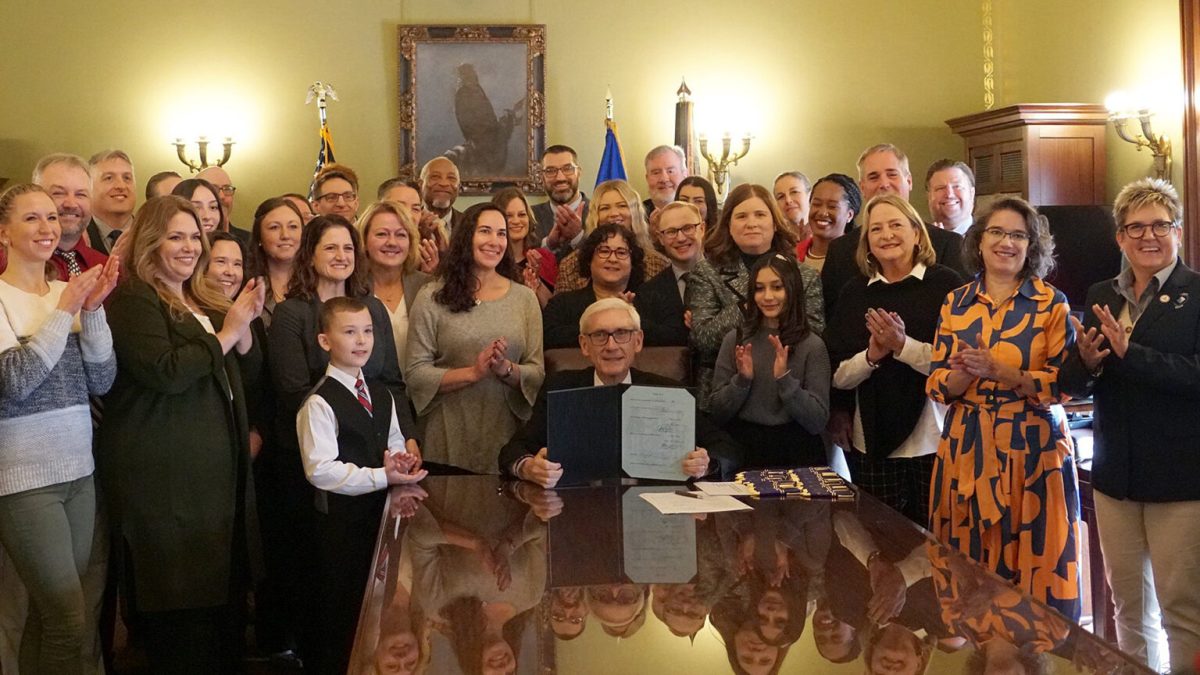In early December, Governor Tony Evers signed the bipartisan legislation Bill 109 Act 60, which requires all students starting with the class of 2028 to have one-half credit of personal financial literacy for high school graduation. Act 60 makes Wisconsin the 24th state to mandate a Personal Finance course for all high school students. The number of states requiring a standalone course in Personal Finance has tripled from eight to twenty-four throughout the past three years.
In 2023, other states excluding Wisconsin that passed similar laws regarding personal financial literacy were West Virginia, Indiana, Minnesota, Connecticut, Louisiana, and Oregon. Tim Ranzetta is the Co-Founder of Next Gen Personal Finance, a non-profit dedicated to educating youth on how to live financially successful lives.
“The foundation of a prosperous future is laid by educating our youth in the art of managing personal finances, and now future graduates of Wisconsin high schools will have this opportunity,” said Tim Ranzetta.
The requirement is one semester of Personal Finance, which includes financial mindset, education and employment, money management, saving and investing, credit and debt, risk management, and insurance.
Ann Ross Stoughton, high school’s current personal finance elective teacher, argues that this change has been long overdue.
“We do the best that we can to meet the needs of our students, and every school district has different needs. [However, Act 60] now puts us in a position where we need to come together and collectively, in my opinion, design a course that meets the needs of all students, said Ross. Ross says this has been a topic of conversation since the 2000s and is vital for all students regardless of their other academic pasts.
“We need every student [from] the kid with a 0.08 GPA, [to] the kid with a 4.0, […] to be in Finance. Every kid needs to understand how to protect themselves and what they work hard for,” said Ross. Before Act 60, every district offered the class as an option but not a requirement. For Stoughton, that meant having a Personal Finance elective and incorporating it with our currently required Economics class.
“It’s no longer going to be a Stoughton thing versus a Madison thing versus an Appleton thing. In Wisconsin, you have certain requirements to graduate, and now we are finally looking at financial literacy,” said Ross.
Pat Schneider, Stoughton High School’s current economics teacher, states that we, as a district, are only one of three schools that require economics. Considering economics is a local requirement for Stoughton, Act 60 may eliminate it.
“We’re gonna probably switch to just having Personal Finance [required] and not having general economics,” said Schneider. This change leads to many questions: what will happen to economics? Will personal Finance be a course for all classes, or will only upperclassmen be similar to economics? Unfortunately, no one truly knows yet, which raises the question of how this new course will affect Stoughton teachers.
If Personal Finance is taught in social studies courses, then there’s no reason for it to be in business courses. That leads to the cut of the business section. However, if it becomes a part of the business section, a new teacher will need to be hired, and a social studies position or two might be cut.
Mike Kruse, Stoughton High School’s current Principal, expressed that some districts ‘saw the writing on the wall’ and required Personal Finance years ago. The change is not a surprise, and personal finance literacy has been a topic of conversation for a long time; however, figuring out how to implement it was a struggle. Regardless, Kruse believes this is a good chance for Stoughton High School, even if we have yet to determine what it will look like.
“There’s nothing wrong with people understanding how to move through the world we live in today. Understanding their own finances, everything down to investing, how to invest for your future, how to understand insurance and the need for it, and maybe not the need for it in certain situations. That’s crucial as a society, to understand things that help you live your life,” said Kruse. Ross has a similar statement about teaching the younger generations how to live financially in our world.
“You are going out into an incredibly [financially] challenging and competitive world, and if you don’t get it, you won’t get it, if you don’t understand how important it is […] to learn what you need to learn. You are setting yourself up to fail,” said Ross.
Categories:
Personal Finance Becomes a Required Course
0
More to Discover
About the Contributor

Kaitlyn Broderick, Opinions Editor
Kaitlyn is a senior, and this is her second year on staff! She’s also the opinions editor. She joined the Norse Star to write and bring her and the school’s opinions to print. Besides the Norse Star, she’s a part of track and field, link crew, and some AP classes. After high school, she’s attending UW Whitewater and majoring in political science. Outside of school, she likes reading, spending time with friends and family, hiking, thrifting, and working.








